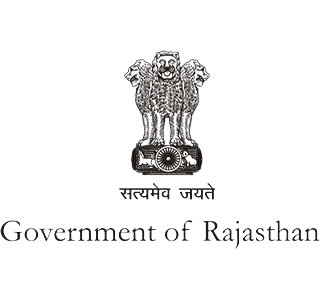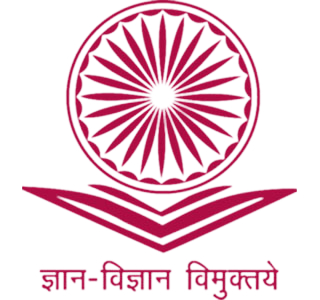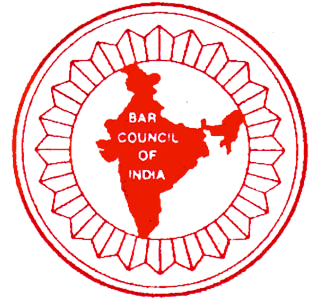LLB (Bachelor of Laws)
Overview
An LL.B. (Legum Baccalaureus) course is an undergraduate academic program that focuses on the study of law and legal principles. It provides students with a comprehensive understanding of the legal system, including its structure, processes, and applications in society. LL.B. programs vary in duration and curriculum depending on the country and institution offering the course, but they typically cover fundamental areas of law such as constitutional law, criminal law, contract law, property law, and tort law.
The LL.B. curriculum usually combines theoretical learning with practical skills development. Students learn to analyze legal texts, case law, statutes, and regulations, as well as to critically evaluate legal arguments and theories. They also develop essential skills in legal research, writing, and oral advocacy. Many LL.B. programs include experiential learning opportunities, such as internships, moot court competitions, and clinical legal education programs, to provide students with hands-on experience in legal practice.
Throughout the LL.B. course, students are encouraged to engage with legal issues from multiple perspectives, considering ethical, social, and global implications. The course equips graduates with the knowledge, skills, and professional values necessary for a career in the legal profession. While some graduates choose to pursue careers as practicing lawyers or advocates, others may opt for roles in legal research, policy-making, academia, corporate law, government service, or other related fields. Overall, an LL.B. course serves as a foundation for further studies in law or related disciplines and provides a pathway to diverse career opportunities in the legal profession and beyond.
Scope of LLB (Bachelor of Laws)
According to US Bureau of Labor Statistics, The employment outlook for computer and information technology occupations is exceptionally promising, with a projected growth rate significantly higher than the average across all occupations from 2022 to 2032. On average, approximately 377,500 job openings are anticipated each year within these fields. This surge is attributed to both the expansion of employment opportunities and the imperative to fill positions vacated by workers departing these occupations permanently. The robust projection underscores the ongoing demand for skilled professionals in the computer and information technology sectors over the next decade.
Department
at a Glance
- Program Overview
- Accreditation and Recognition
- Faculty Profile
- Curriculum Highlights
- Experiential Learning Opportunities
- Career Support Services
- Student Organizations and Activities
- Facilities and Resources
- Admission Process and Requirements
- Student Success Stories and Alumni Achievements
Exclusive
Labs
- Microsoft Innovation Center
- Microsoft - Global Technical Support Center (GTSC)
- IBM Software Lab For Emerging Technologies
- Oracle Academy Lab
- Unisys Innovation Labs
Your Department in a Nutshell
- Achievements
- Patents
- Research
- Expert Sessions
- Activities
- Labs
Eligibility & Fee Details
For Indian Students : Graduation in any stream or Equivalent (Min. 45% for Gen. & 40% for ST/SC and 42% for OBC).
Course Fee | |
|---|---|
Admission Fee (one time) | 5000/- (at the time of admission) |
Tuition Fee | 18000/- Per Semester |
Examination Fee | 3000/- Per Semester |
Development Fee | 2000/- Per Semester |
Caution Money (one time) | 3000/- (Refundable) |
Scholarship Criteria
Based on performance in qualifying exam
| % in Qualifying Class [1] | Scholarship on Tuition Fees | |
|---|---|---|
| Above 90% | 20% | |
| 85% – 89.99% | 10% | |
| 75% – 84.99% | 5% | |
- Early Admission Benefits Upto Rs. 3000/- Admission Taken Before 15th July 2024
- Scholarship in Tuition fee (for all 6 semesters): up to 20% based on academic performance.
Why Join LLB (Bachelor of Laws)?
Joining an LLB (Bachelor of Laws) program offers numerous advantages and opportunities for individuals interested in pursuing a career in the legal profession or related fields. Here are some compelling reasons to consider pursuing an LLB degree:
- Pathway to Legal Practice: An LLB degree is the primary qualification required for individuals seeking to become licensed attorneys, solicitors, barristers, or legal practitioners in many jurisdictions around the world. Completing an LLB program is often a necessary step towards gaining admission to the bar or law society and practicing law professionally.
- Comprehensive Legal Education: The LLB curriculum provides students with a comprehensive understanding of foundational legal principles, theories, doctrines, and practices. Students study a wide range of subjects, including constitutional law, criminal law, contract law, tort law, property law, administrative law, and international law, among others.
- Development of Analytical and Critical Thinking Skills: Pursuing an LLB degree hones students' analytical, critical thinking, problem-solving, and reasoning skills. They learn to analyze complex legal issues, evaluate evidence, interpret statutes, apply legal precedents, and construct persuasive arguments.
- Communication and Advocacy Skills: LLB programs emphasize the development of effective communication, advocacy, and oral presentation skills. Students learn to articulate legal arguments, draft legal documents, negotiate settlements, and advocate on behalf of clients in various legal settings.
- Experiential Learning Opportunities: Many LLB programs offer experiential learning opportunities such as internships, legal clinics, moot court competitions, mock trials, and research projects. These hands-on experiences allow students to apply theoretical knowledge in practical contexts, gain exposure to legal practice, and develop professional skills.
What makes Department
of LLB (Bachelor of Laws) unique?
The Department of LLB (Bachelor of Laws) at an educational institution can distinguish itself in several ways, making it unique compared to other departments offering similar programs. Here are some factors that contribute to the uniqueness of the LLB department:
Placements





Rankings/ Recognition and Accreditation



Our Students Speak

Thank You.

Thank You.

How to Apply
Steps to Follow
Frequently Asked Questions
LLB (Bachelor of Laws) at Career Point University
The LLB program typically spans three years at Career Point University.
Prospective students must have completed their undergraduate education from a recognized institution. They may also need to meet minimum academic requirements and any other criteria specified by the university.
The LLB curriculum at Career Point University covers foundational legal subjects such as constitutional law, criminal law, contract law, tort law, property law, administrative law, and legal research and writing.
Career Point University may offer specialized tracks or elective courses in areas such as corporate law, international law, environmental law, human rights law, or other fields based on faculty expertise and student demand.
Yes, the university provides opportunities for LLB students to gain practical experience through internships, legal clinics, moot court competitions, and other experiential learning activities.
LLB students have access to libraries, research facilities, legal databases, computer labs, study spaces, and other resources to support their academic and research needs.
Graduates of the LLB program can pursue careers as attorneys, legal advisors, corporate counsels, government officials, legal consultants, judges, legal researchers, or pursue further education in specialized areas of law.
Career Point University may offer scholarships or financial aid to eligible LLB students based on academic merit, financial need, or other specified criteria. Students are encouraged to inquire about available opportunities through the university’s financial aid office.
The admission process typically involves submitting an application form, academic transcripts, standardized test scores (if required), letters of recommendation, and any other documents requested by the university. Admission decisions are based on a holistic review of the applicant’s profile.
LLB graduates need to meet additional requirements, such as passing a bar examination and fulfilling practical training or apprenticeship obligations, to obtain licensure and practice law professionally in their respective jurisdictions.






